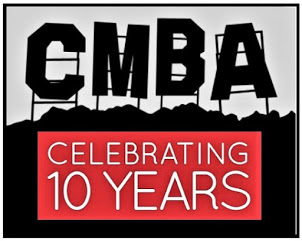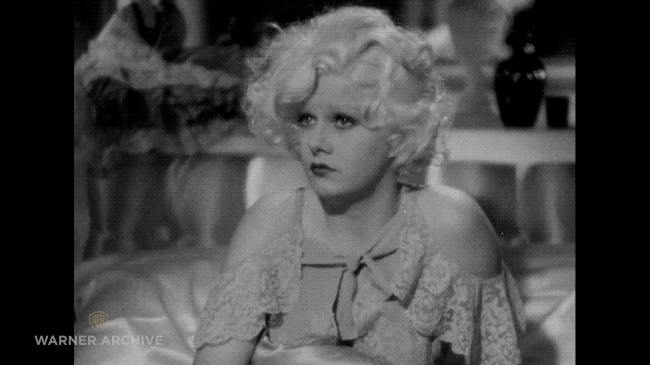Have you ever been the victim of an injustice?
Maybe a false rumour got you fired. Perhaps a loved one was hit by a drunk driver. Maybe someone you trusted emptied your bank account.
Of all the unjust acts committed against you, how often were you recompensed, if ever?
Sadly, there are many who will never receive the justice they seek, and that includes those languishing in prison camps or sold into slavery. Who will right those wrongs?
The concept of Justice can be elusive, despite the courts that exist in nearly every country. For many, the concept of Fairness is a fairy tale.

Bette Davis pins vehicular manslaughter on a bystander, In This Our Life (1942). Image: JustWatch
The movies have always had much to say about justice – whether good or bad. During the Classic Era of Hollywood filmmaking (c.a. 1910s to 1960s), themes regarding justice were governed by the Motion Picture Production Code.
The Code was established in 1930, but not fully enforced until 1934. It was an industry creation meant to fend off the threat of government censorship, especially after a number of high-profile Hollywood scandals in the early 1920s – scandals that included suspicious and untimely deaths.
During the 1920s, censorship boards started popping up around the U.S. in response to public complaints about Hollywood naughtiness. As you know, when folks are unhappy about a situation, they demand the government Do Something.
Additionally, there was a nationwide petition, organized by the Legion of Decency in 1933, that collected an estimated 7,000,000 to 9,000,000 signatures¹. This led to a significant decrease in box office receipts and, as you know, that spells Trouble with a capital T.
So what’s a Studio Exec to do?
Adopt the Production Code, of course. Adherence was voluntary, but it was a nifty Public Relations maneuver, to prove Hollywood was Listening and was willing Clean Up Its Act.

Montgomery Clift bullies Olivia de Havilland in The Heiress. Image: n+1
The Code has been criticized for some/all of its Rules, such as prohibition of interracial marriage and profanity. Our purpose today is not to examine criticism of the Code, because there are many writings on that subject.
We do, though, want to point out some Code stipulations that are still, surprisingly, relevant. For example, filmmakers were never to make rape the subject of a comedy, and they were asked to show a fair representation of the “history, institutions, prominent people and citizenry of all nations”.²
There’s one other rule we like, and it has to do with the idea of justice. The Code reads:
The courts of the land should not be presented as unjust. This does not mean that a single court may not be represented as unjust, much less than a single court official must not be presented this way. But the court system of the country must not suffer as a result of this presentation.³
Which means courts and legal officials in the movies must, eventually, come to the Right Conclusion about an injustice. Joe Criminal robs a poor family and frames Bob Citizen? Law enforcement officials in the movie will suss it out – and away to jail with you, Joe Criminal!
This principle extends to other situations. A ruthless politician terrorizes his constituents? Behold, here is a successor who gives everyone a Fair Shake.
We (yours truly) enjoy this sort of Comeuppance in a film; it’s not something you see in everyday life. Courts, for example, cannot always be depended upon to punish the guilty or exonerate the innocent.
Sometimes it’s satisfying to see Justice Served.

James Stewart is framed by a crooked senator in Mr. Smith Goes to Washington (1939). Image: Empire
Of course, the idea of Good triumphing over Evil is an ancient storytelling trope and is not something exclusive to the movies.
Nor is it exclusive to old movies. Films made today, as far as we can tell, embrace this idea of Good conquering Evil, because it’s something we all want to see. (Never mind that it’s good Box Office Business.) It’s discouraging to see good people lose, and filmmakers realize that.
The authors of the Production Code realized it, too.
Notes















I enjoyed this take on the enforcement of the Code. Justice and fairness should be encouraged, and if a story can do that, let it be so.
LikeLiked by 1 person
It’s sobering to witness all the unfairness in life, so in a movie I want a Good-Guy-Triumphs payoff – unless the film can present the injustice in a truly thought-provoking and memorable way.
LikeLike
Dear Ruth,
Thank you for writing this wonderful article in this series! I’m so glad that you were finally able to participate. I really appreciate this accurate, thoughtful, and insightful article on a interesting aspect of the Code, justice. I truly enjoyed reading your thoughts. I republished you article here: https://pureentertainmentpreservationsociety.wordpress.com/2020/10/02/what-the-code-means-to-me-october-2020-justice-and-the-motion-picture-production-code-by-ruth/. By the way, you get to suggest two films as future Breening Thursday topics for us, and one of them will be the next film we breen! For guidelines on which films to suggest, click here: https://pureentertainmentpreservationsociety.wordpress.com/2019/03/24/suggestions-for-future-breening-thursday-topics/.
By the way, at the bottom of your republished article, I include invitations to three blogathons which we are hosting in the the remainder of 2020. We would be honored if you would join one or more of these!
Yours Hopefully,
Tiffany Brannan
LikeLiked by 1 person
Thanks for your kind comments, Tiffany. I’ve been wanting to write about this for some time, and I appreciate the little nudge you gave me.
I’ll drop by your site this weekend to catch up on all your goings-on.
LikeLiked by 2 people
It’s posts like this one that convinced me to give up social media and return to the blogs where meaningful, thoughtful information like this is often shared….you know, the way it used to be back in the day when I had Sarah’s Place and you started this one.
I love pieces like this one that make me think and that are clearly well-researched. The bonus, and what makes this my favorite blog, is that your personality shines through every article you write and I just love it. It’s always been fun to read what you’ve written, and more than ever, I’m finding it to be relaxing and comfortable too. I just want to hang around here more often, and now that I’ve eliminated Twitter and social media in general, I plan to do that. Yay! What a relief. Good has definitely conquered evil in this case!
I do regret I can no longer tweet posts like this one though…
LikeLiked by 1 person
Wow – I admire you for giving up Twitter. I’ve thought about it alot, but haven’t yet pulled the plug…
Thanks for your wonderful comments. You’ve always had a special place in ny heart because (A) you’re a talented writer, and (B) you were one of the first people to take me seriously as a movie blogger. It was encouragement I really needed at that time of my life, and I was also trying to find my “sea legs” as a blogger. I’ve never forgotten your kindness and support, and I never will.
LikeLiked by 1 person
That’s a compliment I will cherish! Thank you!!! It’s nice to hear that from someone who is truly one of my favorite writers…
I feel somewhat uneasy about how I disappeared for a while there and how I don’t remember some things. But in my defense, as it turns out, I had a brain tumor during that time. One that had been growing for years, but that remained hidden from doctors until I collapsed one day and had to have emergency surgery to get the damn thing out and save my life. (Brain surgery. Ick.) I do not recommend it. That was April, 2014, and Its taken a lot to get back to 99% where I am today. BUT the good doctor says I can no longer use the tumor as an excuse to get out of speeding tickets, so I’m almost back to 100%. 🤞😊 At my last MRI, he called my case “boring” too…..I’ll take it! They couldn’t get the entire tumor out in 2014, so it’s along for the ride forever I guess. I’ve thought about naming it, 😂 Anyway, sorry to ramble on, but I’ve always felt bad for disappearing for those few years…
Have a terrific weekend, Ruth! And thank you again! ❤️
LikeLiked by 1 person
Oh Sarah, I didn’t know you suffered thtough that ordeal. But I’m so, SO glad you made such a remarkable recovery. It has not changed your fab sense of humour, from what I can see.
Now, if only your doctor could give in a bit on those speeding tickets… 😉
LikeLiked by 1 person
Good post. I’ve always been interested in learning more about the Code. I realize that it was too draconian in many respects, but today we’re in the dubious position of seeing what happens when the pendulum swings too far in the other direction. And while “dark” tales can certainly make for good entertainment, it’s tiresome to see them hold a near-monopoly at the box office.
There’s no question that we yearn for stories that give us a sense of justice and fair play. It’s a shame we’ve lost that.
LikeLiked by 1 person
I agree. I think today we need stories about fair play and justice more than ever. Thanks for stopping by!
LikeLiked by 1 person
I wonder if this is the reason Tennessee Williams changed the end of Streetcar in the screenplay from the original play. The original ending is so much better, but not as satisfying in terms of ‘justice’, which the film implies will happen.
LikeLiked by 1 person
You’re probably right. There’s no way the original ending could stay as is under the Code rules.
LikeLike
Really well written and interesting piece. I especially enjoyed studying this part of film history during my degree. I was also enamoured of the ways filmmakers would try and get around the many rules in the Code too.
LikeLiked by 1 person
You’re right – filmmakers became quite clever in getting around the code, didn’t they? I like finding the ways they worked around it.
LikeLiked by 2 people
Hmmm…I’ve never viewed the code in this way. I suppose like many things in life its purpose was more complex than just to censor material. I’m constantly surprised at how old movies were able to show some very salacious things and develop moral ambiguity within the confines of the codes.
LikeLiked by 1 person
Haha! You said it! Those clever filmmakers certainly found ways around the Code.
LikeLiked by 1 person